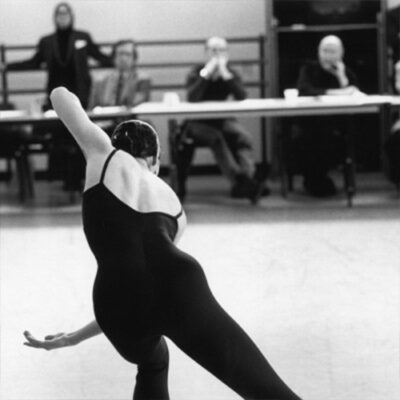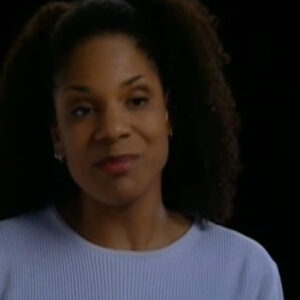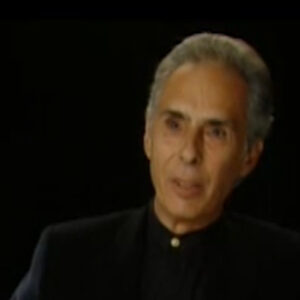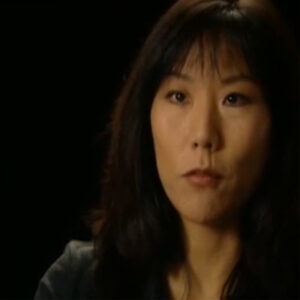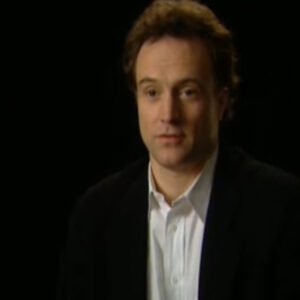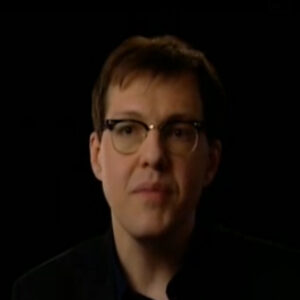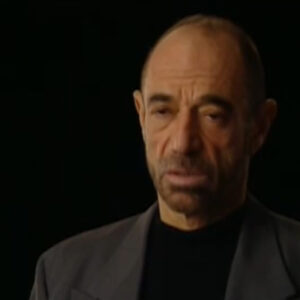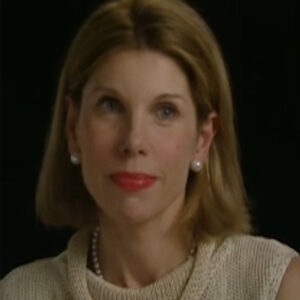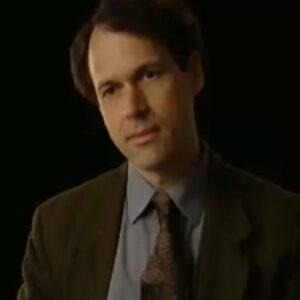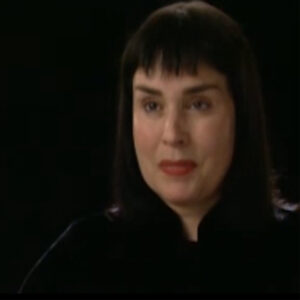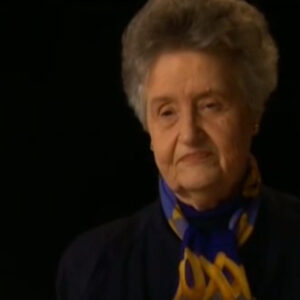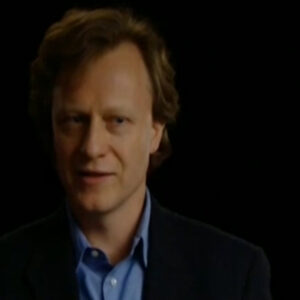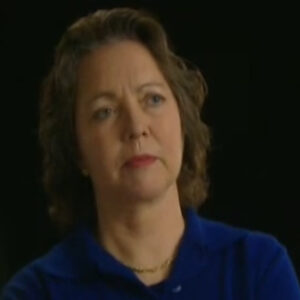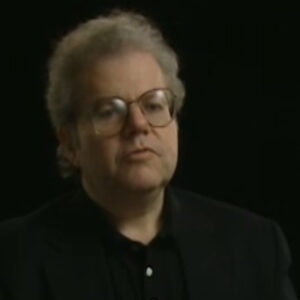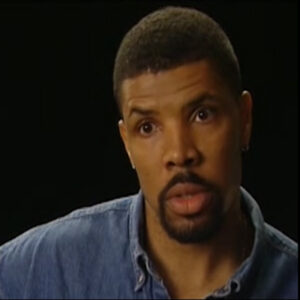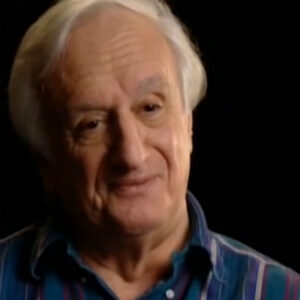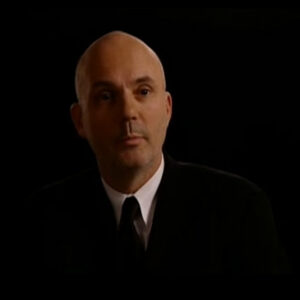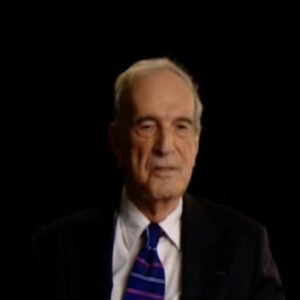Speaker You know, a thing relating to the work is that the training does give you a vocabulary. And it gets you know what I mean? Yeah. It gives you an idea of vocal placement. Pronunciation, melody, inflection, phrasing.
Speaker This have way too much like we’re really. We are like, oh, oh, you go. And officially we’re rolling.
Speaker OK, officially we’re beginning. And I know not to look in the camera chatting with me. Tell me that you are not. You can throw your right hand up. Don’t don’t just. Okay. Well, let’s start early. You know, in the sense of how you came to be. How did you end up there?
Speaker And also, I always say for the record, my own voice doesn’t appear in the movie. So, you know, unlike Charlie Rose, I.
Speaker You want complete sentences? I would not. Yeah. I usually kind of ask in a way that will respond.
Speaker But if you just say yes. Oh, yeah. Then I didn’t know. Yeah, but let’s talk a little bit about, you know, what brought you to this.
Speaker I’ll tell you exactly what prompted the school. Edith Skinner, who was the very first faculty member hired by John Houseman when he was putting together the faculty and, you know, probably he started that process in 66, 67. Not sure they started in 68. Edith Skinner was the foremost speech teacher in the American theater. She taught at Carnegie Mellon, where I went to school in Pittsburgh. I had studied with her as an undergraduate for four years.
Speaker And when I was ready to have this little you guys don’t touch those cups and clatter, you know what they do on stage and in film with those cops, they line them.
Speaker So nervous actors just don’t hear the sound from the sound guys. Yeah, they do. They put little felt felt pieces on and they can hear.
Speaker I like that type of cuts. All right. So I know we’re starting. Okay.
Speaker I came to Juilliard because of Edith Skinner, who was the premiere speech teacher in the American theater for, you know, 40, 50 years. She taught at Carnegie Mellon in Pittsburgh where I went to school. And when Houseman was putting together the faculty for Juilliard, she was the first faculty member he hired. She. Four. Four. Well, at least eight years, maybe more. She commuted between Pittsburgh and New York. And when I was finished with four years of study with her at Carnegie Mellon, she well, I got a grant from the National Endowment for the Arts to be a teacher trainee under her at Carnegie. And at the same time, I took courses in linguistics and anatomy, transformational grammar, which, of course, was of no use to me in my profession. But she thought it would be good to know. And when I was finished with that, she just had John Houseman hire me at Juilliard. So I came to New York with a job at 25. A lot of the students were actually older than I was. And I started teaching not a lot, but probably taught 10 hours a week. My first year and I taught with Edith. In fact, we shared an office and I stayed there for 12 years. So that was 1975 through 87.
Speaker And tell me a little bit. I mean, what kind of a person was not that many people talk about her? Maybe.
Speaker What kind of a person was Edith? Well, she was.
Speaker Funny. Forbidding. She was eccentric. She was downhome. She said exactly what she thought she was. She demanded work. I remember she argued with Anna Sokolow one day in the hallway.
Speaker Liadh psychoanalysing Edith, you you you work the students. You really get them to work. And she was a no, darling, I. You were the one who really gets the students to work.
Speaker But she was a she was a taskmaster. And she was warm, wildly eccentric. You had to call her Mrs Skinner your first year. And after that she was like your old pal, your best friend. She was. Edith Ann. And she was amazing, devoted to her craft and clearly the expert on. Speaking for the theater, she, you know, taught things about Shakespeare, rhythm, phrasing, and also just clear speech, and she taught dialects as well.
Speaker And talk to you a little bit about what the causes that were being taught, you know, wording. Where did this? I mean, this importance of voice speech in his classical training. I mean, we’re hearing about it the time. You know, one of the early, early things that became a critical kind of element to this programming. What do you think philosophically made it so important to the program? And then and then how did they actually how did you all actually execute what this was going to be?
Speaker Well, I think that what the housemen and Michelle Santini were after, where this whole thing about truth in style. And the speech work was really trying to find a balance between first of all, of course, just plain old clarity in theaters, but also the.
Speaker Kind of emotional and even in a funny kind of way, sociological truth. And believability of Americans playing King Lear, playing Oedipus, playing Rosalind, playing Cleopatra.
Speaker It comes out of a long tradition, comes out of tradition of basically of the New York theater and in the 50s, the regional theaters. You know, really took off in America with the arena stage and Margot Jones down in Dallas. And suddenly the idea of a theater company and versatility, ability to do ability to do classics as well as contemporary work became something to which most young actors aspired to. And I think a Juilliard. The faculty was looking for those actors who could efforts effortlessly go from Sam Shepherd one night to Tennessee Williams to Shakespeare, to the Greeks, to she stoops to conquer. And one of the things you need there is skill, versatility and believability in speech. And I think that it’s not accidental that Housemen hired Edith is the first faculty member. It was a cornerstone of the training. I don’t know how much training there has changed, but for my 12 years there, it was very, very important. And it wasn’t just Edith. You know, we had when I was there, we had we had four faculty members in voice and speech for a lot of that time. Edith Elizabeth Smith, Robert Williams and and myself. So it was it was a team effort. And we all taught slightly differently. Each of us taught something slightly different with the students after four years.
Speaker Got somebody that they could assimilate. Choose and come out with it worked for them. I mean, there’s some criticism of the place of speech in the American theater, ranging from the traditionalists who say, you know, it’s important. We need to find an American speech that works for the classics and others who say it doesn’t matter at all. And of course, the proliferation of microphones now means that you hardly have to use speech training as as a tool for clarity, because who needs it? You know, you don’t have to say anything except, hey, you know, goodnight. And you can hear it. I feel badly, but you can hear it in big theaters when they’re miked.
Speaker This is a question I had much later down the line, but it’s been that sense of also some of the criticism that we know comes to the voice. People like sitting, in addition, Giuliani and. And some people described a way to get all that training. And then you spent two years letting it go because you don’t sound like yourself anymore. Whatever that uniqueness. What have you have you sort of discovered what I’m talking about?
Speaker Absolutely. And what is that? Well, no, it’s I just said it. No, it’s it’s the very thing you said.
Speaker I mean, that training is something that you can give to students in a constant stream, but they may not absorb it at the same time, you know. Edith once said to me, I forget why. I think one day I went in and I was I thought teaching my little heart out. You know, I was demanding. I was, you know, eager. All of those things. And the student sat there and clearly weren’t getting anything. And then about a week later, I went in one day and I was sick. I was also depressed about something. I don’t even remember what I said. You know, I don’t have the heart. I don’t have the heart to do this today. I just don’t feel like it. I’m sorry this has never happened to me before. But you know what? You just each get up and, you know, do something a little bit of Shakespeare or something. I don’t care. I probably said three words, the whole class. And for the whole following week, each of those students, Kim said that was the greatest class we ever had. It was so wonderful. And I went to eat and I said, what was that all about? She said she said, Darling, teaching and learning don’t have anything to do with each other. If they do come together at the same moment, it’s mere happenstance. And I think at Juilliard, the training was extremely strong. The classes were important. Other theater schools. The productions are important. The lifestyle is important. The overall training is important. At Juilliard. Every class was important. Seemed to the students and to the faculty members life and death. That’s why the teachers were so great. They were all the top people in their fields and they had those strong points of view and strong desire to teach. Students can’t get everything. All at once. And sometimes it takes you five years, 10, before you can assimilate everything. I hate to say this because I hate the term, but making it your own. But yes, it is kind of making it your own, you know? And, yeah, there are there are some people who had the, you know, the Juilliard voice right out of school and some of them never got rid of it. And sometimes the Juilliard voice is exactly what. You want in a production and I’m not. I’m using Juilliard voice, I’ve never said that phrase in my life, but since it was brought up, I know exactly what you mean. And and I don’t like it either.
Speaker But.
Speaker I have a feeling that because of sociological changes in the country, that you find less of that. With the recent graduates.
Speaker I have a feeling.
Speaker You know, the frustrating thing for for voice and speech is and maybe for the for the whole faculty teaching classics at that school in America was being in New York. Because the things that we were, I think, trying to teach were not on evidence, not in evidence in the New York stage. You had to go to the center stage in Baltimore. You had to go to the old globe. You had to go to Yale rep. Sometimes you had to go to two other theaters to see the classics done really well on a regular basis.
Speaker And, you know, if you’re if you’re studying opera at Juilliard, you can go across the street to city opera and to the Met and hear and see wonderful things that exemplify the training that you’re getting. But that was very hard for first, I think, for students in New York.
Speaker The classical we don’t have a national theater. You can go you can go to Budapest and see more Shakespeare in one week. In the theater in Budapest than you can in New York even today.
Speaker Really?
Speaker I mean, we were being trained for.
Speaker Well, I think that it existed as an ideal.
Speaker And I think it again existed as a cultural movement from the 50s and the 60s when theaters like the Guthrie were. We’re the standard bearer for this kind of repertory system. This system of of a company of actors who could move effortlessly from August Wilson to, you know, whatever to a Jacobean tragedy on alternate nights. When I went the first time I went to AICTE, you know, Edith Edith had a long history at ACTC because Bill Ball went to Carnegie Tech.
Speaker Back in the 50s, they had a real repertory. I remember I would go at the because I’m from Southern California. I would sometimes fly from Pittsburgh at the end of the school year, go to San Francisco for one week, and in one week you could see a different play every night.
Speaker I saw Marsha Mason and Peter Donat in Syria, de Bergerac. It was amazing. Then the next night I saw The Crucible. That night after that, I saw the house of blue leaves. I mean, astonishing range. That was an ideal that people had in the 50s and 60s and 70s and maybe something in the cultural air, but certainly in the financial situation has destroyed that. There are no companies anymore. The acting company is about the only repertory company left. They can’t afford to change the sets every night. And they cannot afford to keep a company together and that that part of the eye, the Juilliard ideal, is I. Again, it’s very hard to teach that ideal when it doesn’t exist. I think that the idea of of productions and fitting into a production and inspiring production with truth in style is still there.
Speaker But working can tenuously. And continually in that, I think is is a lost hope.
Speaker Tough talk a little bit about two things that are that are sort of interesting, I think, especially if you’re if you’re not if you don’t know that much about it.
Speaker Oh, thank you. I thought it was vodka.
Speaker The the. I mean, when people come in, we used to sit in auditions.
Speaker We come in. You know, what are you what are you really looking at or listening to. You know, Ralph CEDO, I don’t know if you know or not, but yeah, he was my student.
Speaker I guess I was going to say he was in Brad Whitford and Thomas Gibson’s class.
Speaker Yeah. Like, you know, you see him on auditions and then he gets them to read my plan.
Speaker How do you know? Along the way.
Speaker And then. And you sort of. He’s listening, listening, listening. I mean, what are you looking for when people are coming in? What are what are these sort of worries about with people?
Speaker And then how do you teach them?
Speaker What do you what do you literally doing from, you know, hello kids in September to, you know, the third year out?
Speaker Well, I my my view of about I think my view about the way I would treat people who are auditioning or judge them. Let’s say it is a kind of a judgment that has changed. I think this is hypothetical that I’m a taught there. And, you know, it’s been 13 years since I was there. But in those days, you were you were looking for people who seemed to from from my point of view, seemed to have potential for acquiring a lot of skill and voice and speech. Sometimes that’s just a feeling. You have some about somebody. Sometimes it’s listening for things that you think might be a block of some sort. Sometimes a physical block. If somebody came in with terrible, you know, vocal nodes or somebody came in with with really bad physical equipment for speech in the same way that people it s a b will look at the structure of somebodies foot, though it’s not nearly so strict in a theater setting. I was looking for all of those things.
Speaker Rarely did it become an issue, but I was looking for them as they were talking and they were auditioning. I would write little notes, you know, the S’s bad jaw tension.
Speaker That nasality boy doesn’t breathe all of those things. You know what? Nowadays, I would just say if I’m excited by their additional, let’s take them, because it is the best. I think it is now, too. But it was it’s the best voice and speech training in the English speaking world. I have no doubt now. I used to say that now that I’ve really gotten to know things in England a little better. There’s no question it’s the best voice in speech training for an actor in the English speaking world. I would just say if somebody is that gifted and they have eight teeth missing and incredible jaw TENJIN that requires seeing a special smile. Let’s get them to the school. We’ll have their picks. Well, we’ll send them to a specialist and and we’ll help them if they’re that gifted.
Speaker I I have changed in that sense.
Speaker Yes. Gladwin said that your heart of Philadelphia. L. L.
Speaker Yeah. Well, they, you know, in Philadelphia many people have. Don’t use their tip of the tongue for the oil. They use the back of the tongue.
Speaker Oh, I’m getting that on camera. Oh.
Speaker Philadelphia. Yeah. Well that works for some plays.
Speaker I don’t know which ones, I suppose Albert in Erato plays. He’s a Philadelphia playwright. But sometimes it doesn’t work.
Speaker And it also is a tension problem when you’re trying to work to acquire a different kind of. And so it takes a long time to correct that.
Speaker So so literally, when kids are when kids come in, I mean, what what is this sort of in some ways, what’s the difference between voice and speech, which are different?
Speaker And what? I mean, physically with this, you know, I love Abdellah. Look, what what are all these? What’s that arc of that of what you’re actually doing to get this guest speech?
Speaker Well, I think that the the the. The distinction between voice and speech is at least as as I taught it, and I think as Edith taught it, is is it things that you were learning in Robert Williams class? Lis Smith’s class about voice would be applicable to any language in the world that you would speak. It’s starting with the body breathing. Your alignment. All of that and the production of tone. What what Edith and I worked on is really what once you have some breath and tone and freedom. How do you use that to produce the sounds of the English language? You start with. Well, I started differently every year and so did Edith. Edith never thought the same way. Two years in a row. Sometimes I would start with consonants, sometimes with which I learned later was a mistake. Never stuck with consonants. It’s much too difficult to start with ear training. I mean a variety of things. But it involves training the ear, loosening muscles, jaw tension, flexibility of the tongue. Soft pallet work.
Speaker Work on the lips and and and also, you know, we use the phonetic alphabet as a kind of a tool, which is a again, it’s a it’s a it’s a vocabulary. It’s not it doesn’t make you speak any better. It helps you talk about trying to learn to speak better.
Speaker But the class the one of one of the greatest things about the classes at Juilliard, certainly.
Speaker I’m not sure about the about the English schools, I have to say, but in America, the big advantage the voice and speech classes had was they were so small. We’d sometimes have five people in the class six. The whole class would maybe be 20 people, 21 people, and from my my class, they would be in four sections that most places you have 15 people in and in a speech class to have only five people.
Speaker I mean, that’s an extraordinary gift. And often you had later in the third and fourth year, you had individual lessons with students. They got a private lesson. Once a week.
Speaker Well, you’re getting a lot of attention there.
Speaker If you think about later in life, you’re being on a movie now and you’re talking about, you know, big stars being able to say, well, you know, we want you to pay Tim to view this movie with me for six weeks or whatever. And, you know, and they’re they’re commanding a lot of star power.
Speaker But in a sense, at Juilliard, you’re really getting a lot of very, very specific attention from a lot of very talented people. It’s like when you watch ah ah, you know, sort of daily, sometimes you see four grown, talented, experienced, you know, top of their field people, eyes locked on one person, you know, singing a number from Carousel.
Speaker Wow. Yeah. Are they going to be lonely in four years. You know, because it’s a lot. I mean, did you did you sort of feel like there’s just this incredibly serious work going on here?
Speaker You know, focused very individually on people.
Speaker It’s a big treat, a big treat for the students. It was. Well, actually, for the faculty, we had discussions all the time. Is there too much training? Whereas the time for life experience, particularly in the first and second years you went in and my school, Carnegie Mellon, was like this to maybe some of the other schools are different. You went in at nine o’clock in the morning and you came out at ten or eleven o’clock at night. There was very little lifetime.
Speaker And I know that that sometimes the acting teachers would say, you know, we want them to bring all of this life experience to their work, but they don’t have any life experience.
Speaker Not only because of their age and the age I saw, I saw the age increase slightly over my 12 years there.
Speaker I think that that we had quite a few recent high school graduates in the first year when I started. But by the time I left 12 years later, there were very few high school people right out of high school. Almost everybody had been to college for a couple of years. And I would say at least half of those classes were already undergraduate graduates, people who had been to two who had bachelor’s degrees. It became a kind of a graduate school. What was hard for some people was it it was a four year graduate school.
Speaker But then the catch 22, there also is this day that you’re coming out Thursday.
Speaker It’s very tough, you know. And my view right now is is really skewed because because I’m working so much in film and it’s all about not only about youth, but about looks.
Speaker Some I mean, where Edith once said, what if I haven’t you said, what do we do to these students?
Speaker We take in these gorgeous young creatures in their first year and we turn them out four years later. They’re old hags because it’s not just that it was physical, but some of it was it was you know, you work like a dog, that school, you know.
Speaker And, you know, there are no electives. You know, you’re told exactly what to take for four years. You don’t have a choice.
Speaker You don’t have a choice of you know, you read about call it college undergrads who say, we know I chose my classes around my soap operas. There’s a thing like that at Juilliard. At any serious school, I’m sure there isn’t.
Speaker But you take exactly what they give you and you’re in class with maybe a lunch break and a and a dinner break. And during that time, you’re probably preparing something for the for the for the next class. You know, it’s tough. Tough life. And now with the financial situation, I don’t know. But I don’t know how kids can afford to even live in that neighborhood anymore unless they’re living five to an apartment. Or do you have dorms now, too? Don’t they did it. Did the theater students get to live in the dorms? No.
Speaker So if that helps, a little bit. But. Just to commute. Is is tough. And then keep that schedule.
Speaker It also that that pressure cooker atmosphere, though, also meant that the students had great parties. Oh, they had parties. People getting naked. The cops coming fill up this one. And we’re doing his famous tiger impersonation and trying to leap out a window. He actually fell out of the window from a brownstone of the Upper West Side.
Speaker They had good parties, good parties. When I was on jury duty, the first time in New York, they they asked me, you know what you do? And I said, you know, I met a teacher where a Juilliard. And the case was clearly a drug case. And among the things they said, if you ever been around drugs. And I said, yes, I have.
Speaker And.
Speaker They said he said recently, I said, well, you’re living in New York in 1977. You go to any party and somebody is going to be smoking pot or doing something. And afterwards, this little I did not get chosen, by the way, for that jury. But afterwards, a little old lady, she must have been in her 80s, who had also been in the prospective jury pool, came up to me and said, you know, I want to tell you, I went to Juilliard as a violinist. I graduated in 1933 and we never had that much fun at that school. But they they were good partiers, and sometimes you could tell the chemistry of the class by how much and how hard they partied and how musical they were.
Speaker Very musical students at Juilliard. And I think that’s one of the reasons why they do so well in sitcoms. Now, if you’ve noticed, but between Thomas Gibson, Kelsey Grammer, I mean, the list, Christine Baranski. You know, David stires on Marshall, the list goes right down. They have done they have excelled in classical theater and sitcom.
Speaker And the quality of discipline, timing. Bravery. Physical transformation. I hadn’t had kind of fun energy, I think works in both of those arenas. Oddly enough. And sitcom is life. Sitcom is life theater. Almost all of them have an audience with three cameras going.
Speaker And some of the film actors I work with have no timing whatsoever. They think they do. But the editors do all the time. They know how to pick up a cue. But I’ve seen. I remember seeing one of a film star once to do a famous American play on stage, and she was brilliant except in those monologues. They went on and on endlessly because she didn’t have. She’s never timing. She did know how to shape a speech. Well, if you’ve done that as a as a student at Juilliard or Yale or NYU or any other place, and you’ve worked on a Shakespeare monologue in 10, 20 Shakespeare monologues, you know how a speech begins, has a middle and hasn’t and it has its peaks and crescendos.
Speaker Well, that that is equally applicable to sitcom skills, that it’s all about time. Setting up a joke, getting your laugh.
Speaker Regionalism was never an issue with any student.
Speaker Being cut from the program or even getting getting.
Speaker People, family getting down on their case for their speech.
Speaker What was at issue with students, sometimes with voice and speech, was the sheer ability with these.
Speaker Classical plays in the way.
Speaker The Juilliard faculty envisioned being done, which is granted a traditional way in terms of language.
Speaker So I don’t I don’t think anybody’s ever said, oh, he sounds so Philadelphian or he sounds so let’s throw him out. He sounds so Californian, but when the amount of work on voice and speech, they’re. Was so great and was such an obstacle to the actor being free to act. We sometime that would be an issue when when the when the cuts, the famous cuts would come at the end of second year. The ones that I can remember that had to do with voices. Very few I can think of, maybe three over my 12 years there in which the issue really was voice and speech. And the issue usually was that they weren’t flourishing as actors. Was the wrong school for them. The school that spends so much time with with verse. I mean, you know, the gods, Shakespeare and Shaw. How were they thriving?
Speaker And then I don’t know about the one, but the two cases that I can think of, they are acting, work was suffering, wasn’t the right place for them. You know, they weren’t they weren’t really doing very interesting work as actors, not free. Well, maybe that was the fault of the program for having that kind of of.
Speaker Emphasis on voice and speech. That’s possible.
Speaker But at the time, this whole idea of versatility, a company ability to transform, an ability to go from one genre to another, one style to another, was still the thing that everybody was thinking about, truth in style. And a couple of times that that cut was made because of their lack of ease with the language or their lack of ease with the training in the language. More often than not, it was an issue strictly of of acting, quote unquote. I have to say again, I now treasure so much how great that that voice and speech faculty and curriculum was at the school. And I think still is that now I would never dream of even saying yes. I think the voice and speech is an issue. I would say, well, you know, if they’re having problems and voice and speech, then this is the best place to be. We can we can help you better than anybody else. And if it means that the actor is a little stuck at the moment, that they’re uneasy, easy there, they get up on stage and they’re doing a Shakespeare in there. They’re, you know, stilted or or frozen or inexpressive, intimidated. Then two things have to happen. We should keep the student and the faculty has to work harder to find new methods to get to that student. And maybe I was probably a bit rigid. Maybe. Maybe a lot rigid myself, but I think that I think that, again, because of the selection process that we had with the auditions, we usually had a pretty good percentage of the students who actually did thrive with the with the amount of training that they had in voice and speech.
Speaker Most of them took to it pretty well.
Speaker And in the in the faculty, within a group of discussion, how did in your in your time. Mm hmm. And there were a lot of people in your time, you know, that have done very well. I mean, Lisa Gay Hamilton might be, you know, being Raimes. You know, Andre Braugher is a lot of really very talented African-American actors out of the school. In fact, I would say if you’re a funny way, you considering, you know, some of the issues that they felt up against. I’m almost feeling mathematically. So I start listing those people and you know that only two or three people are really successful out of every class. We’re talking about quite a few of the of the black actors doing very well. But how did the faculty meet from the point? And I’d read Houseman’s book. And I don’t know if you’ve ever read husband’s books.
Speaker Yeah, he took a long time ago, the years to that movie about Dean Henderson, about some of the early efforts to, oh, I didn’t have black actors in the school, but then, you know, maybe not quite knowing how to manage them.
Speaker And you even hear about that. I mean, how did the faculty talk about it? I mean, there were no black directors of shows. I’ve heard all these stories. No, there was no black faculty. There was no I mean, how did it in the in the course of the faculty. Did it ever come up? I mean, how how is it discussed? How is it thought about or was it not?
Speaker I to be honest, I don’t. First of all, in terms of of the talking about the faculty and the composition of the faculty, I was never in on those discussions, but even casually in the hallway at McGlade.
Speaker I never heard that subject come up. I really I don’t remember it being talked about, to be honest. And I didn’t bring it up either. Now, I just thought we’d start again. Because you say that. Oh, that’s right. Then I don’t know what you’re talking.
Speaker I do not remember the subject of of African-American or Filipino or what for Asian-American faculty members ever coming up as a subject in itself. I don’t remember that. I don’t remember bringing it up myself. I don’t remember anybody else talking about. I was not in on faculty discussions about the composition of the faculty when I was in the faculty discussions. It was about the classes and the students. As far as the the I don’t know what John Houseman wrote in his book.
Speaker I guess I missed that when I know he wrote several that I don’t remember him discussing that in your own sense.
Speaker I mean, you know, you were there in the time of all those years as a faculty member.
Speaker Were you aware of the struggles that they were going through or did you did you sort of take was that issue just a big strand for them and for everyone else? Quite. I noticed the way it is mirrored in society. Well, maybe you know what I mean.
Speaker I think that from my own point of view.
Speaker I was so interested in the classical, whatever you want to call them, playwrights. And the work and the artistry that those things take. I don’t think I thought ever about.
Speaker We must get more Asian-American playwrights work done. Or African-American playwrights works that the contemporary plays were really not the focus of the school. I think they are now. You know, there were no playwrighting students. Back then, there were no directing students, which was, I think, a huge problem for the school. And as far as the students were concerned, all of the students had had a ton of work to do to be able to speak the lines in King Lear.
Speaker I think that part of this comes also from my work with Edith. Edith Heaths was never happy with anybody’s speech at the beginning. She thought everybody had to work. The upper middle class white kids from Wisconsin needed to do just as much speak were the speech work as an Hispanic American kid from Santa Fe, New Mexico had to do. There was her standard was so high. And I think that that that I probably was it was in the same camp with her in that in that field.
Speaker I don’t remember.
Speaker Thinking that, you know, when I think about it. Andre Brower. Keith David. He was Keith Williams, then Denise Woods. They actually excelled in the voice and speech classes. They actually were standard bearers for the entire class. Sheila Dabney used to get her classmates to work on their speech. And again, because the whole question of speech training wasn’t as political as it is now.
Speaker I don’t know what I would do if I was teaching at the school now. I don’t know how much leeway I would give myself in approaching the teaching of speech.
Speaker I don’t know if how much of a standard I would stick to. But when I was there, the subject came up, but not very frequently.
Speaker And when you think politically, you know the subject in speeches as having a political issue that you just said, well, what do you what do you mean by the issue of what?
Speaker What is standard American speech?
Speaker Does it represent a socio economic class? Does it and does it represent political power? Does it represent, you know, corporate power? Does it?
Speaker All of those those are the foremost questions that that people are concerned with now when you talk about teaching speech in a theater school. Fifteen years ago, it was you were still talking about the tradition of the theater.
Speaker That’s what you were talking about, how how how did you were you were it was it was insular in that sense. You were judging yourself against the traditions of the way American was spoken on the stage. Forty years ago, 20 years ago, five years ago. Now we’re we’re concerned about.
Speaker I gather because again, I haven’t taught it. I haven’t taught a class in 14 or 13 years. And now you’re talking about, you know, cultural diversity. Whether. Why not. Why not say say do Hamlet with it with a very. If you happen to have a very California accent. Go ahead and do it in a California accent if you have to have it.
Speaker You know, your Philadelphia accent, your bosses do it like that and doesn’t mean some of the speech teachers in some of the programs now believe that you shouldn’t prescribe anything. Of course, I happen to think that. Well, then what would you teach them if you don’t prescribe anything? Because really, if you if you say you had my old California accent, well, then why change anything?
Speaker Why work on your voice at all? You certainly don’t need it anymore to be heard. A lot of theaters around the country are miked now. Theaters that. So clarity, audibility is hardly an issue.
Speaker Now and since versatility.
Speaker And being in a company and going from style to style is hardly an issue in the American theater anymore. Most of most of the time when when actors now talk about versatility, they’re talking about the ability to do television, theater and movies. That is now diversity.
Speaker But as far as transforming physically, vocally, most actors don’t need it.
Speaker There’s a huge pool of actors out there. Most of them are out of work and a lot of them really good.
Speaker And the accent work is different, doing different dialects. That’s something else. That’s because once you get established. Yes. It’s nice to be able to go in. And do you know, a Czech accent or a you know, a Delta dialect? That that’s but just the way you speak yourself hardly matters to even to a casting agent. I think because they just get somebody else.
Speaker You know.

